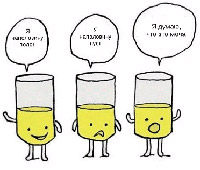During the last week the main theme of the discussion of the society was the possible return of Robert Kocharyan to politics and Serzh Sargsyan’s comments regarding these rumors. “And when has Mr. Kocharyan ever deflected from politics so he would return now?” Sargsyan responded to the journalists in Tavoush.
During this interview the President has also alluded to the possibility of war, the functioning of the government, the possible resignation of the Prime Minister and the economic crisis. The assessment of Sargsyan on overcoming the crisis were slightly outside the focus of attention of the media but that in fact good and well explains the logic of the behavior of the governmental elite. Let us remember that the theme of the crisis was again exacerbated when the minister of economy of Armenia Nerses Yeritsyan stated that Armenia has with honor overcome the global crisis. The Armenian president appeared to defend Yeritsyan without mentioning the latter by name. He said declarations about the end of the recession are “welcome” if they are aimed at spreading “positive expectations” among the business community and the general population. By the same token, he added, claims to the contrary should be taken seriously only if their purpose is to “motivate the government to work more intensively.” “You can overcome a crisis not only by making investments in the economy, not only with purely economic activities but, first of all, in your consciousness,” Sargsyan said in televised remarks. “All of us must now see the emergence from the crisis in our consciousness.” Significantly, President Sargsyan made a mostly positive assessment of the government’s response to the global credit crunch and vowed continued support for his reformist prime minister. “I am not going to change the government or the prime minister,” he said. Such a drastic move, continued Sargsyan, might have been justified last year when the Armenian economy was shrinking at double-digit rates. “But now that the economy is slowly recovering, what is the point of speaking about a change of the economic team?” he said. “I consider such a change unfounded.” This means if Nerses Yeritsyan made this statement to just brag, then it is not acceptable. But if he’s done this to transmit positive impulses to the society then he did the right thing. Let us set aside the fact that in practice it is impossible to determine whether the official was bragging or saying those things with honest incentives. Even if the reason was the second one then this is still a meaningless occupation. Let us simplify this. Before planning his businesses the entrepreneur tries to make approximate predictions about future developments and conditions (for himself and the economy in general). In other words, he/she forms expectations for himself/herself. Modern economists claim that these expectations are formed by very serious analyses and not by intuitive and rough calculations, especially when we are talking about serious companies and firms. And in their analyses the statement of “we have overcome the crisis with honor” will definitely not be included. Indeed, there are also such companies in Armenia, which do not elaborate deep strategic analyses but are among the greatest taxpayers. It means they have the monopoly to import a specific type of goods. And they don’t need to tense their brains for analysis. They are just making money. These people, as a rule, do not base their businesses on the words of Nerses Yeritsyan or other. They instead build the vision of their businesses around gambling tables or saunas by receiving the necessary information from their people within the government. Thus, by speaking about positive impulses the government cannot possible pass on these impulses to the major businessmen, on who our economy is based. But is it possible to form positive moods or expectations among individuals or average families? The individuals are not doing deep analyses. They mostly rely on intuition but even in this case it is almost impossible to form positive expectations. There is this so-called rule of adaptive expectations, the contents of which is approximately the following: people revise their expectations from the future because of the previous practice. They are analyzing to themselves to what extent their expectations came true. For example the citizen recalls that last January he was trying to figure out in what currency to keep his savings. Thus, he was expecting that the currency rate would be stable. Then only in a month the AMD rate “exploded.” Or he may recall the conviction of the government back from 2008 that the global crisis will only cross near our country and that no major impact would be caused. We all know what happened later. As a matter of fact, any slight analysis of any average citizen will tell them that there is no need to trust the government. If we add to this the fact that the Armenians have a chronic lack of trust to the words of the government officials then the efforts of forming positive expectations are totally senseless, especially when the statements clearly contradict the reality. It is possible to say the cup is half full with half full water in the cup. But when the cup is fully empty these words are ridiculous. So it turns out that facts and truth are degraded as opposed to the meaningless attempts of creating optimistic hopes and the statesman instead of doing his job is occupied by hypnosis.
P.S. Current and former representatives of the governmental camp by trying to deflect the target of the economic difficulties from the President mention that the president is receiving incorrect information. It means that the representatives of the economic bloc are depicting everything to the President in rosy colors. It is interesting whether this behavior is justified or they are doing all this to form positive expectations with the President and transmitting a good mood to him?

